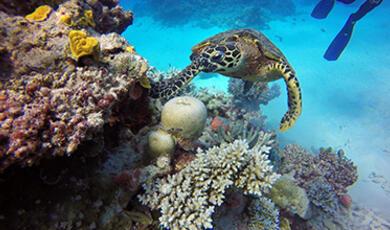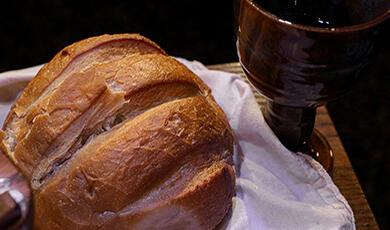Press release: How Microbes Manipulate Life

Explores the “dark and disturbing world of microbial manipulators”
Growing evidence Toxoplasma gondii and gut microbes influence human behaviour worldwide
Talks of ‘Goldilocks’ pathogens: which maximise transmission without stopping host in tracks
Embargo: 22 March 2023 7pm
I would like to invite you to a lecture by acclaimed microbiologist Professor Robin May on How Microbes Manipulate Life, on Wednesday 22 March 2023.
May, the Gresham Professor of Physic, is currently the Chief Scientific Adviser at the Food Standards Agency (FSA) and Professor of Infectious Disease at the University of Birmingham. This is the fifth lecture in May’s series All The World’s A Microbe in which he looks at some of the amazing feats that microbes achieve and some of the surprising ways in which they affect our day to day life and shape our behaviour.
In this lecture, he will explore how the “dark and disturbing world of microbial manipulators” is full of examples of organisms acting under the ‘direction’ of invisible forces that drive them to perform acts of self-harm or even suicide.
Pathogens and parasites come in all shapes and sizes. But what they have in common is a need for a host. May will show how natural selection has driven extraordinary biological microbial innovation through which many microbes have evolved the ability to manipulate their hosts into unwittingly transmitting their invisible passengers.
Sneezing and coughing are perhaps some of the clearest examples of this behavioural manipulation by pathogens. Other pathogens make their way to a new host through its stomach.
However, May will look at how some pathogens have evolved to go much further than this. For example, ‘spiny headed worms’ have evolved to infect intermediate hosts such as invertebrates in order to get to their definitive host in birds. They can manipulate the behaviour of the intermediate host in order to ensure a much higher probability of transmission to their definitive host. In this example they do this by affecting the behaviour of invertebrates such as woodlice which, when infected, “develop an unhealthy interest in walking in open areas, instead of beneath leaves, and so become eaten by starlings.”
Pathogens can do much more than manipulate the behaviours of insects however, with emerging evidence starting to indicate that microorganisms can also manipulate the behaviours of humans.
“One of the most dramatic and dreadful examples is the rabies virus. Typically contracted from a dog bite, once the infection is established it is irreversibly deadly. During progressive rabies, affected patients display a range of bizarre behaviours; profound fear of water, aggression, confusion and hallucinations.”
May will look at how growing new evidence suggests that the parasite Toxoplasma, which normally infects cats and rodents but sometimes inadvertently ends up in humans, could be influencing our behaviour. Recent epidemiological data suggests that “Toxoplasma-infected individuals show a higher probability of schizophrenia, or being involved in road-traffic accidents, especially those that involve aggressive behaviour…with around one in three of us worldwide already harbouring this tiny parasite in our brains, it’s possible that Toxoplasma may have a far more profound impact on human society than we have previously realised.”
Professor May concludes by considering how other more recent large scale epidemiological investigations are starting to reveal the startling impact of the gut microbiome on the behaviours of humans. A recent study of over 600 volunteers worldwide showed striking correlations between the abundance of certain microbes and the sociability or neuroticism of the donor.
You can sign up to watch this hybrid lecture online or in person.
ENDS
Notes to Editors
You can sign up to watch the hybrid lecture online or in person; or email us for an embargoed transcript or speak to Professor May: l.graves@gresham.ac.uk / 07799 738 439
Read more about Professor May
Sign up to our monthly newsletter here to get advance notice of our events.


 Login
Login





